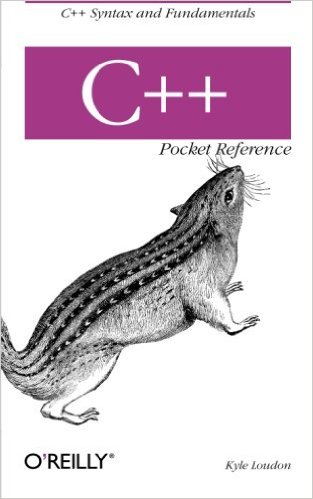$ 9.95
C++ Pocket Reference
Product Details
C++ is a complex language with many subtle facets. This is especially true when it comes to
object-oriented and template programming. The C++ Pocket Reference is a memory aid for
C++ programmers, enabling them to quickly look up usage and syntax for unfamiliar and
infrequently used aspects of the language. The book's small size makes it easy to carry about,
ensuring that it will always be at-hand when needed. Programmers will also appreciate the
book's brevity; as much information as possible has been crammed into its small pages. In the
C++ Pocket Reference, you will find:
- Information on C++ types and type conversions
- Syntax for C++ statements and preprocessor directives
- Help declaring and defining classes, and managing inheritance
- Information on declarations, storage classes, arrays, pointers, strings, and expressions
- Refreshers on key concepts of C++ such as namespaces and scope
- More!


Reviews
Question & Answers
5
Great pocket reference
- 12
- 01
- 2017
by Robert L. StevensonThe C++ Pocket Reference is designed for C or Java developers who occasionally program in C++ and
need a syntax reminder. Not designed as a tutorial or provide lengthy instruction on the subject,
this book is great for a one paragraph explanation on a particular topic.
I found this to be a very useful and easy to follow book. It starts out with the basics of writing
a C++ program (processor directives, data types) and slowly moves into more complicated aspects of
this language (like templates and memory management). I would highly recommend this as a reference
book if you find yourself occasionally doing some programming in C++.